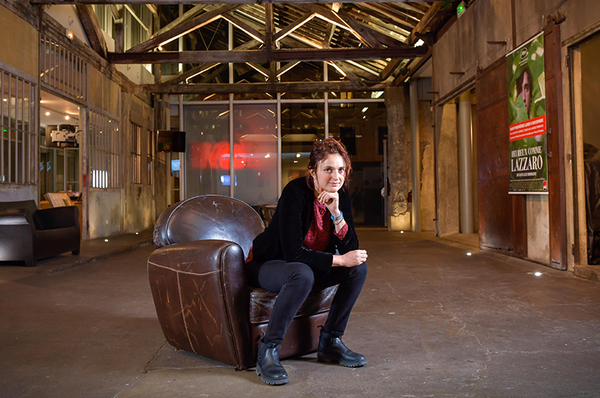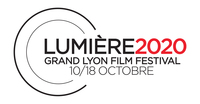Alice Rohrwacher, in the name of the Italian people
PostED ON OCTOBER 8 AT 1:50 PM
Alice Rohrwacher is Italian, and a filmmaker; a double identity she relentlessly asserts in her movies. From Italy, she retains an earthiness in the physical sense. From the cinema, she cultivates the great traditions of her film fathers: Fellini, De Sica, Olmi, Pasolini, Bellocchio, Rosi, Bertolucci, Risi... She keeps them intact and renewed at the same time. In three works with fabulous titles: Corpo Celeste (2011), The Wonders (Le meraviglie, 2014), and Happy as Lazzaro (Lazzaro felice, 2018), the young director puts forth films of communities that are at once political and poetic… and uniquely hers!

Collection Institut Lumière - Jean-Luc Mège Photography
Rohrwacher is perfectly aware of the significance of living in Italy, the land of legendary cinematographic regions. While Marco Bellocchio chooses Emilia Romagna to portray its modest people, Ermanno Olmi places his characters on the banks of the Po River, and Federico Fellini features the streets of Rome, Rohrwacher places her subjects in Calabria for Corpo Celeste, in Umbria for The Wonders and in Lombardy for Happy as Lazzaro, territories linked by the atavism typical of her country.
In this context, she films the clergy of Corpo Celeste. Like Bellocchio, fascinated by the psychoanalytical methods and miraculous workings of the link between Italy and Catholicism, Rohrwacher questions religious roots without partisan judgment. She takes advantage of her era, where a filmmaker can perhaps finally ask the question, calmly: “Today, why still be a believer in something that subscribes to a dogma?”
Rohrwacher is in search of how we live the life of tomorrow. Akin to Bellocchio, who often conjures strange and prodigious effects in his films, Rohrwacher uses what the cinema allows: a recourse to the real fantastic. From this vantage point, Lazzaro, an amiable young man, dies, and comes back to life a few decades later, unchanged. After all, everything must be possible for those who are humanly irreducible, such as the adventurous characters dear to Vittorio De Sica in Miracle in Milan. Creative, the filmmaker imagines mystifying appearances that are deliberately out of tune, with incongruous and uncomfortable irruptions, influenced by the triviality of television, which so enchanted Fellini. Case in point, Monica Bellucci in The Wonders appears as a plastic goddess. Bellucci plays a media icon who influences Gelsomina (the same name as the protagonist of Fellini’s La Strada), the teenager of the film, like some adulterated fairy from a Disney movie. Everything is possible in cinema, true, and everything can enter the frame; she once again takes Fellini’s lead, who imagined improbable cohabitations. So, when the irascible father of The Wonders suddenly becomes friendly with a camel installed in the middle of the family farm, delighting his daughters, it is pure bliss!
Behind this poetic parade emanating from Rohrwacher's films, a powerful discourse finally shines through: the exploitation between social classes in rural areas, and the homelessness of cities. Devoid of cynicism or irony, Rohrwacher explores the question that the likes of Risi, Pasolini, Elio Petri or Bertolucci asked themselves before her, “What does it mean to live in Italy today?” Lazzaro, Gelsomina, and Marta respond, with fresh perspectives. Instinctive and spiritual, they welcome, without suspicion, their manners of living on the margins of society, which is perfectly egalitarian in their eyes. This sort of ancient wisdom in young characters that do not allow themselves to be dominated by social disparities, is their way of combating them, which makes Alice Rohrwacher a thoroughly modern Italian filmmaker.
Virginie Apiou
Alice Rohrwacher
Meet Alice Rohrwacher on Tuesday, October 13 at the Comédie Odéon at 3pm
She will introduce also
Happy as Lazzaro on Sunday, October 11 at Cinéma Comœdia at 2:45 pm
Corpo celeste on Sunday, October 11 at Lumière Terreaux at 8:15 pm and on Monday, October 12 at Cinéma Opéra at 8:15 pm
The Wonders on Monday, October 12 at the Institut Lumière at 5:45 pm and on Tuesday, October 13 at Pathé Bellecour at 5:45 pm

